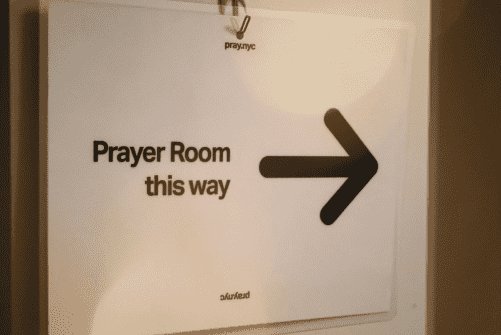
Blog
- Employer advice
Home
Resources
Employer advice

Michelle Ann Zoleta, Health & Safety Team Manager
(Last updated )

Michelle Ann Zoleta, Health & Safety Team Manager
(Last updated )
The New York City subway shooting may once again stir up the debate on gun safety policies in the U.S.
While Canada’s laws on gun control and gun licensing are much stricter than those in the U.S., it is important for workplaces to have an emergency policy that lays down the protocols to follow in the event of an active shooter attack.
Under the occupational health and safety law, it is an employer’s general duty to take all reasonable precautions to provide a safe workplace for their employees. This includes being prepared for emergencies such as active shooter attacks.
Though active shooter situations are largely unpredictable, being prepared can help you and your staff respond better and be safe in the event of a shooting. This blog offers advice on the protocols workplaces should follow and include in their active shooter emergency policy.
Some industries may be more vulnerable to attacks or robberies than others. For instance, banks or businesses dealing in valuable goods or confidential information. Your location may also be a critical factor. It is important to first conduct a risk assessment to determine the risks and the safety controls to put in place to protect your staff and workplace.
The safety controls may vary depending on the nature of the business. Some basic prevention controls include:
Your active shooter emergency policy should include:
An event involving an active shooter is unpredictable. Usually, law enforcement is required to end such a situation. You could respond to an active shooter in your vicinity or on your work premises in three ways. You should review the circumstances and make a judgement call on the most appropriate response.
Find a safe hideout. If possible, pick a room with a lock on the door. Block the entrance to your hideout. Ensure you and your staff take cover behind sturdy objects and away from the door. Close all curtains or blinds. Put all mobile phones and electronic devices on silent and call 911 when it is safe to do so.
If exiting the building is an option, do so immediately. Ask your employees to leave their belongings behind. If you know of a safe escape route that is not close to the location of the shooter, use it. Everyone should ensure that their hands are visible while evacuating. Put all mobile phones and electronic devices on silent and call 911 when it is safe to do so.
This should be a last resort. Only exercise this option when your life is in imminent danger. Act with physical aggression and try to incapacitate the shooter by throwing objects at them. Call 911 when it is safe to do so.
When making a 911 call to report an active shooter attack, you should convey the following details:
When law enforcement is on the scene, you should:
Whether it is a policy on dealing with an active shooter or responding to a natural disaster, our experts can help.
Peninsula’s experts can help you create company policies and assist you with any HR, health and safety and employee management advice you may need. To learn more about how our services can benefit your business, call an expert today at 1 (833) 247-3652.
Home
Resources
Employer advice
Find out what 6,500+ businesses across Canada have already discovered. Get round-the-clock HR and health & safety support with Peninsula. Click below to unlock free advice, policies, e-learning, and more.
